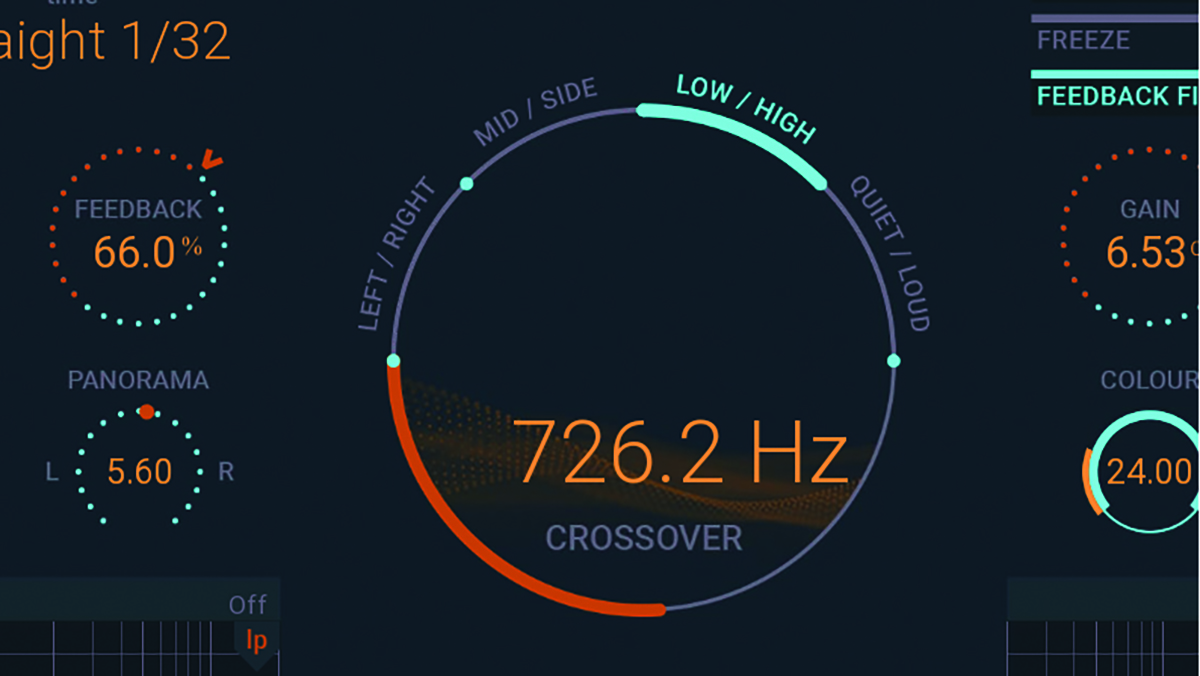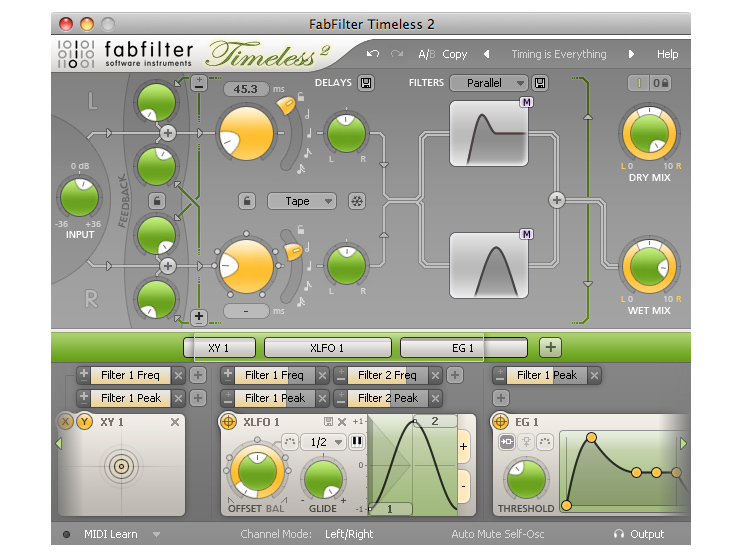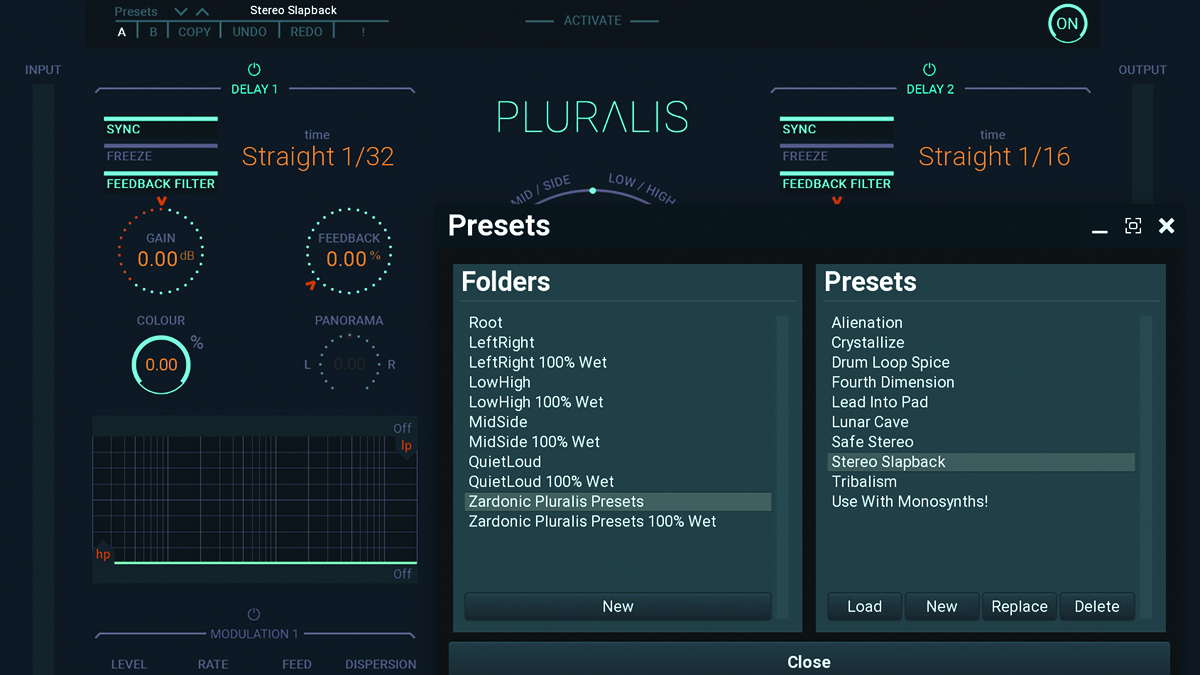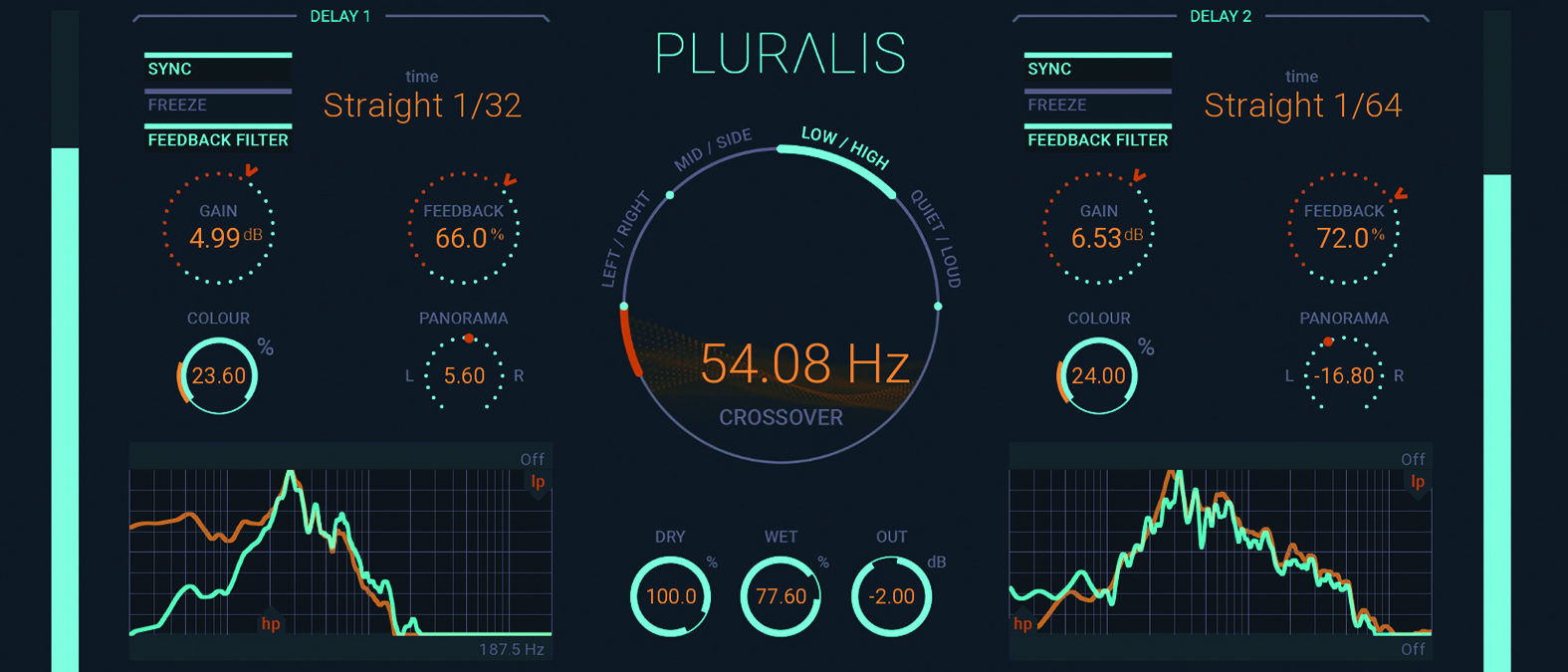MusicRadar Verdict
Pluralis is what happens when developers try something a little different and strike gold. It does something little else does, so if you want your sound to go a little off road – or indeed a lot off road – get it now.
Pros
- +
Lovely, clear UI.
- +
Incredibly varied sound.
- +
Loads of sound design potential.
- +
Sync keeps everything sounding great.
Cons
- -
Concept initially confusing.
MusicRadar's got your back
United Plugins Pluralis: What is it?
Because of the wealth of effect plugins you get with your DAWs these days, third-party developers are having to think outside the box to keep their wares attractive. Consequently, we’re seeing effect plugins becoming more creative, more able to multitask, and just, well, better.
With Pluralis, for example, United Plugins/SounDevice Digital is taking the humble delay, doubling it up and processing the two strands in ways not yet seen before. And it might well have struck gold in doing so.

United Plugins Pluralis: Performance and verdict
Pluralis has two regular effect engines and you could just use it as a regular double delay plugin should you wish. However, each of the two delay signals can be processed in four different ways but also as a combination.

• FabFilter Timeless
There’s little out there that does what Pluralis does, so here’s one of the great all-time delays anyway!
• Baby Audio Comeback Kid
At the cheaper end of the scale, this Baby Audio delay is both creative and great value.
The four main Pluralis modes are Mid/Side, Left/Right, Quiet/Loud, and Low/High. The last two are the easiest to explain. In Quiet/Loud mode, the signal is processed by the left hand delay while it is below a certain volume (in dB and set by the Crossover dial in the centre of the UI) and processed by the right hand delay while it is above that level. At the maximum volume of 0dB, everything is processed by the left delay. At minimum, everything is processed by the right delay. Get it? OK it sounds complicated but the next mode might help…
In this Low/High the two delays are applied to frequency ranges again determined by the Crossover dial but this time measured in Hz. Everything below the crossover frequency is processed by the left delay and everything above is processed by the right delay.
In the other two modes, Left/Right and Mid/Side, there is no Crossover value to alter. With Left/Right the left delay engine processes the left hand side of the stereo spectrum and the right does the right hand side. Easy! Similarly, in Mid/Side, the left handles the Mid and the right handles the sides.
In all honesty, it makes more sense actually listening to the results through headphones rather than us trying to explain it, but take it from us, you will hear the right processor providing different delays from the left hand processor depending on which mode you choose and they do become surprisingly easy to master, and in no time at all.
Want all the hottest music and gear news, reviews, deals, features and more, direct to your inbox? Sign up here.
Messy delays?
Now we know what you are thinking: two engines, each one processing different parts of your signal. That could quickly end up sounding a mess, right? Wrong. With the Sync option engaged on each delay engine, everything stays in time and the delays (usually) sound fantastic and very creative.
We know what you’re thinking: two delay engines, this could end up sounding a mess, right? Wrong…
It’s not always easy to predict how Pluralis will sound and to get you a better idea, it’s well worth running through the excellent presets – which we do below – to hear how the engines have been tamed by the experts at United Plugins.
And these really do show how creative Pluralis can be. You’re going to have to work with it and get your head around the whole splitting up process, but once you do, we think Pluralis could end up being quite the sound design tool. We had it running with Baby Audio’s new BA-1 synth, and as good as that is as a plugin, Pluralis utterly transformed many of its sounds into completely fresh soundscapes.

Pluralis presets
While we don’t always focus on presets – they are usually there to sell a product and it’s always worth creating your own – in this case, the Pluralis sounds are well worth auditioning. You’ll hear each of the four modes in action which will help explain the splitting concept if you’re unsure about it. There are folders containing 10-15 presets each for the four modes, plus one each with 100% wet mixes, so the sounds can be dramatic and very varied; some of the Left/Right delays sound cavernous, for example.
They also often don’t do quite what you expect. With the Quiet/Loud folders we were expecting more subtle, restrained delays but while some are, others are totally in your face, bold and brash. And you might start out thinking that Mid/Side processing is for nuanced tweaking, but end up realising it can be anything but that! Overall you can get a massive range of sounds, even within the same mode folders, which demonstrates the huge potential for sound design that Pluralis has.
All four one
At €79, Pluralis is a no-brainer when it comes to creative delays. There’s little else out there that goes as deep, but that’s also as easy to master. Once you have got a handle on the four different modes you’ll wonder why all processors don’t use them and Pluralis could well become the creative tool you didn’t realise you need.
MusicRadar verdict: Pluralis is what happens when developers try something a little different and strike gold. It does something little else does, so if you want your sound to go a little off road – or indeed a lot off road – get it now.
United Plugins Pluralis: The web says
"An easy‑to‑use plug‑in capable of some musically useful delay coloration that you won’t find elsewhere."
Sound On Sound
United Plugins Pluralis: Hands-on demos
United Plugins
White Noise Studio
Frankie Tedesco
United Plugins Pluralis: Specifications
- Mac OS 10.10 Yosemite to Ventura. 64-bit. Intel/AMD/Apple Silicon CPU.
- Windows 8/10/11. 64-bit. Intel/AMD processor with SSE2 support.
- Compatible with 64-bit VST, VST3, AU and AAX hosts.
- CONTACT: United Plugins
Andy has been writing about music production and technology for 30 years having started out on Music Technology magazine back in 1992. He has edited the magazines Future Music, Keyboard Review, MusicTech and Computer Music, which he helped launch back in 1998. He owns way too many synthesizers.

